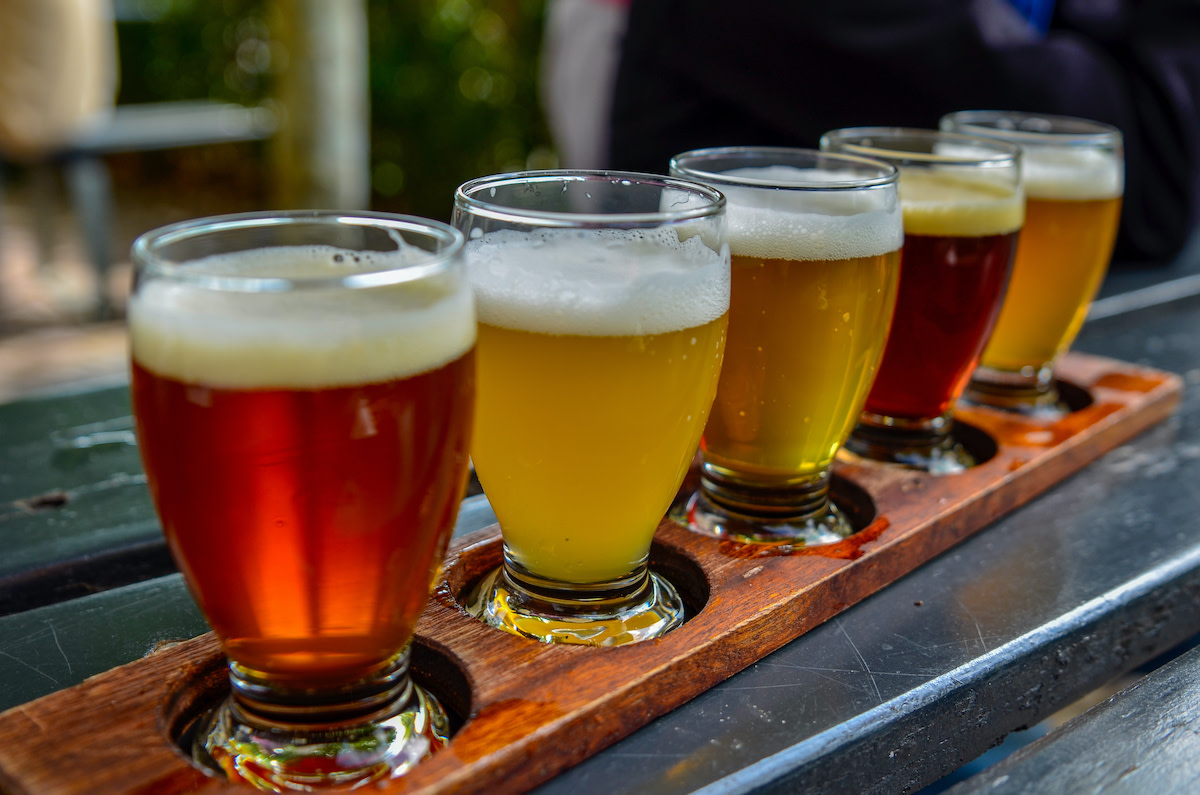Pilsner vs. Lager: Difference Between the Two Beers
Written by MasterClass
Last updated: Aug 27, 2021 • 3 min read
A pilsner is the result of carefully controlled “lagering,” an aspect of the beer brewing process that can produce other types of lagers under different circumstances. Therefore, all pilsners are lagers, but not all lagers are pilsners. Learn more about pilsners and lagers.
Learn From the Best
What Is a Pilsner?
A pilsner (sometimes referred to as “pilsener” in some locales, or “pils” as slang) is a type of pale lager beer that originated in the Czech Republic city of Plzeň (anglicized as the city of Pilsen).
Bavarian brewer Josef Groll is widely believed to have developed the first pilsner beer in the nineteenth century. This brewer from Bavaria hit upon a specific lager recipe made with soft water, malty barley, and Saaz hops. This specific noble hop flavor gives pilsner-style lagers their spicy flavor. This type of lager became well-liked by German immigrants and then began spreading in popularity throughout Germany, Europe, and the rest of the world.
4 Types of Pilsners
Various countries and cultures around the world have put different spins on the pilsner. Here are five types of pilsners:
- 1. American pilsner: In comparison to the taste of their European counterparts, American pilsners have toned-down flavors, featuring notes that are sweet, bready, and malty.
- 2. Belgian pilsner: Belgium boasts several prominent pilsner brands that are generally very light and smooth.
- 3. Czech pilsner: The taste of Czech-style pilsners recalls sweetened bread. This pilsner malt is sometimes referred to as a Bohemian pilsner (Bohemia is one of the older names for a large portion of Czech territory).
- 4. German pilsner: German-style pilsners generally taste more bitter than other pilsners. Their flavor profile is a midway point between very light lagers and darker, hoppier ales.
What Is a Lager?
A lager is a kind of beer made with a type of yeast suited to bottom-fermenting at cold temperatures. The lager style varies in terms of how dark or light as well as how high or low the alcohol by volume (ABV) is for each individual beer type. Many well-known international beer manufacturers, as well as specialized craft beer companies, produce lagers in mass-market quantities. They are generally less hoppy than ale-style beers.
5 Types of Lagers
A pilsner is a kind of lager, but there are multiple other types of lagers as well. Here are five of the most prominent:
- 1. Bock: This style of beer is stronger and darker than many other types of lager. It’s still not as hoppy as an ale though.
- 2. Dunkel: This Bavarian beer is dark brown and smooth. It derives its name from the German word for “dark.”
- 3. Helles: Named for the German word for “bright,” this type of lager is bright gold in tint and tastes as light as its name would suggest.
- 4. Märzen: Märzen lagers are a little more robust than some of their counterparts. Their full-bodied taste is flavorful without being bitter.
- 5. Vienna: Developed in Austria, this amber lager is sweet, bready, and malty. It’s more often found as a craft beer than a mass-produced drink.
Pilsners vs. Lagers
A pilsner is a type of light-colored lager that maintains its bright color while undergoing a process called “lagering” during production. Like other lagers, pilsners are bottom-fermenting types of beer made with a carbonation and brewing process characterized by cooler temperatures. To ferment at the bottom—the aspect that brewers sometimes refer to as lagering—means that the lager yeast spends a longer period at the bottom of a container.
In contrast to different lager styles of beer, pilsners are never dark lagers (they’re bright yellow rather than dark brown). As for how they compare to other popular beer styles, pilsners are always pale, but much smoother and with more malt flavor than, say, an India Pale Ale (IPA). They also have a specific ingredient profile and fermentation approach not shared by every other lager or beer. Whether an ale, general lager, or specific pilsner suits beer drinkers’ tastes depends more on their own preferences than any objective standard.
Learn More
Learn more about mixology from award-winning bartenders Lynnette Marrero and Ryan Chetiyawardana. Refine your palate, explore the world of spirits, and shake up the perfect cocktail for your next gathering with the MasterClass Annual Membership.
